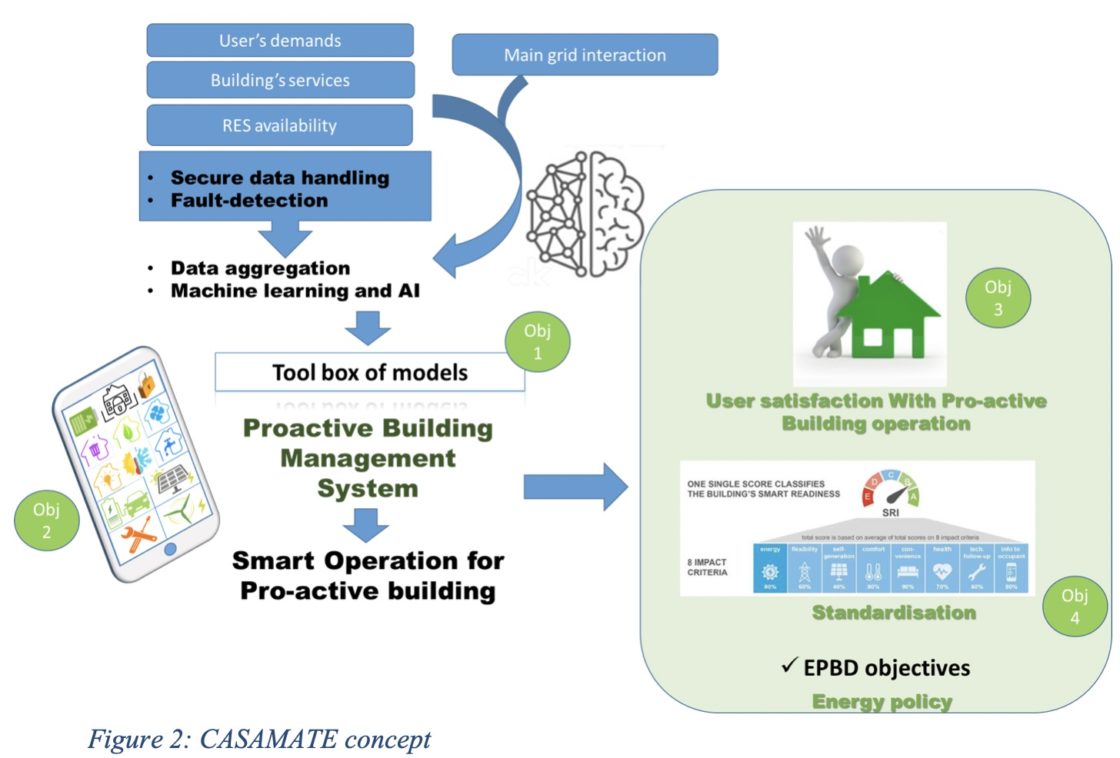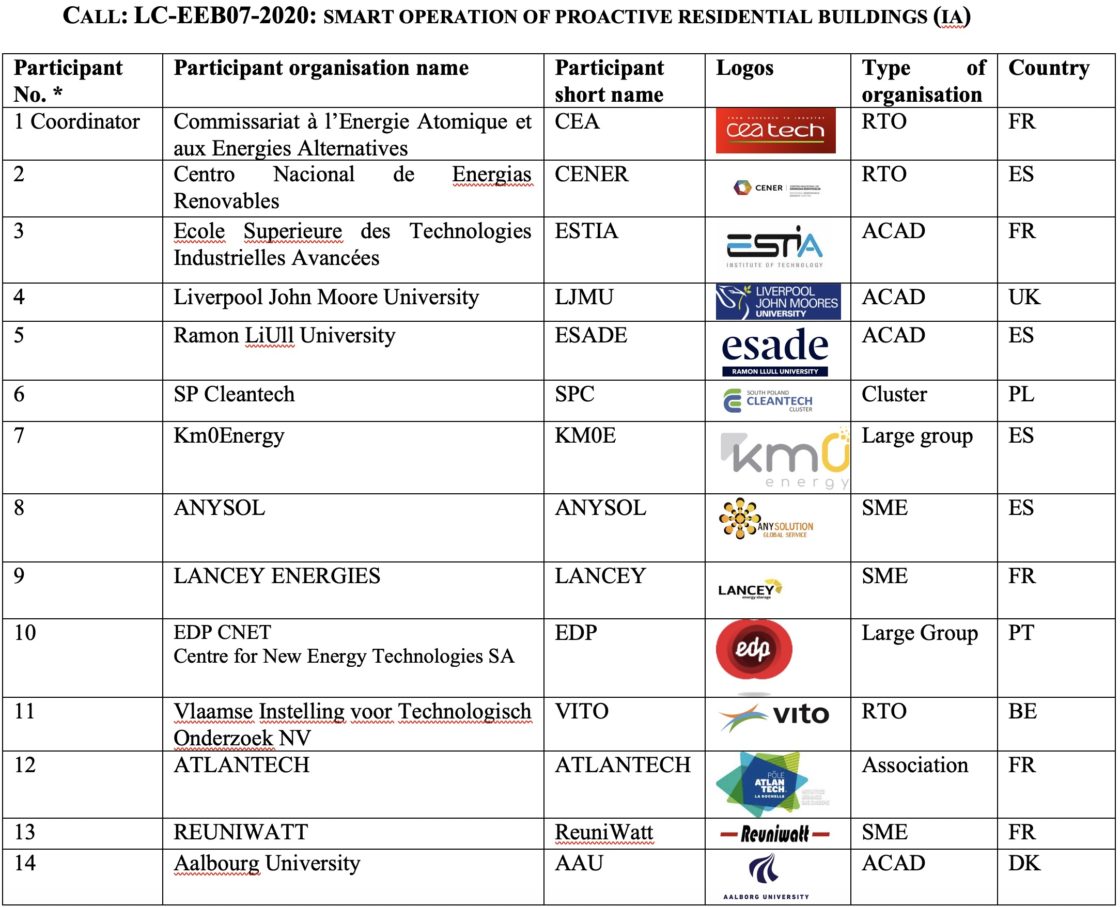On 05.02.2020, SPCleantech delivered together with partners from France, Spain, Portugal, Belgum and Danmark an EU application to Horizon 2020 – CASAMATE: ProaCtive operation mAnagement of reSidentiAl buildings to reach high sMart reAdiness indicaTor lEvel.
The Energy Performance Building Directive (EPBD) and the revised Energy Efficiency Directive (EED) ask to Member States to implement building strategies allowing to target of a 30% increase in energy efficiency by 2030. At the same time, the construction sector and the built environment is experiencing a digital transition with Building Energy Management Systems (BEMS) allowing a better use of energy in the building up to automation and smart homes. Based on the evolution of the building context, the EU building directive 2018 (EBD2018) from May 2018 describes the new “smart readiness indicator”. (SRI) that will be used to measure the level of smartness of buildings by using information, communication technologies and electronic systems to adapt the operation of buildings to the requirements of the occupants and the grid, and to improve the energy efficiency and overall performance of buildings.
The proposal CASAMATE goal is to contribute to this digital transition as well as to the implementation of SRI. Indeed, the integrated management of energy (flexibility, efficiency and self-consumption) and automation system for comfort, safety or well-being and health, must be integrated to smart operation for a proactive residential buildings.
The SRIs give the readiness of the building:
- to adapt in response to the needs of the occupant,
- to facilitate maintenance and efficient operation,
- to adapt in response to the situation of the energy grid.
EU targets that interactive sustainable building for energy neutrality/positivity in a block of buildings, was to induce a further 15% reduction of energy consumption at district and emissions by 2020.
Now, new concepts of energy use require a development at district level in order to amplify renewable capacity production, energy storage availability and improved energy efficiency. In CASAMATE we plan to develop experimentation and design of tools for set up of smart operation of proactive buildings (single family houses).
All these solutions will be modeled and implemented in 2 energy oriented R&D building site, 1 living lab and 2 real demonstration sites to associate the management of solution to reach high level of SRI addressing the energy domain (renewable, storage and flexibility), comfort, and maintenance at building level as well as for e-mobility in district level.
The challenge of the CASAMATE project is to develop the management of energy of a residential building up to a whole district, with proactive operation function. This new energy management building must render more efficient the energy use in building, address flexibility, renewable energy integration, and convenience in use, as well as comfort, and well-being. This approach must go up to the design of new ergonomic platform management for the user.
The main goal of CASAMATE is to foster the integration of smart operation of pro-active residential buildings, by developing and demonstrating at R&D pilot buildings and in 2 pilot demonstration sites, a set of tools and methods for the development to support high level of Smart Readiness Indicators (SRI) in the buildings.
The set of tools and methods to be demonstrated is defined as follows:
- Development of digitalisation of building management and control tool through data collection, machine learning and models (Obj1) allowing designing pro-active buildings and data visualization (Obj2). The final digital plan will be an easy-to-integrate Building Energy Management System to optimize the operation of a whole building up to its interaction in district-wide system and will address energy management and components managing safety and well-being.
- Replication Tool: catalogue, hardware architecture and software (Obj1) to support the concept design of smart operating of pro-active buildings (sizing, configuration, selection of technologies, etc.) (Obj3) and the development of techno-economic feasibility studies (Obj4).
- Support of a standardised approach of SRI as systematic to implement buildings (Obj4).
- Overall smart operative building awareness: Based on demonstrations (Obj3), CASAMATE will develop the business models and impact analysis for the development of smart proactive buildings addressing their whole life-cycle (design, installation, commissioning, use in operation and maintenance, up-graded (Obj4).
These set of tools and methods will be validated and fine-tuned by means of its demonstration in one R&D pilot building–INCA instrumented houses-), and 2 real demonstrations, at La Rochelle (ATLANTECH site) and Arsenal do Alfeite.




